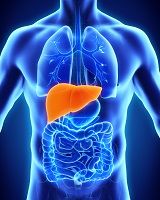Article
Hepatitis C: Interferon's Return Stirs Controversy
Author(s):
The use of interferon to treat hepatitis C infections has fallen out of favor with the advent of new antivirals and drug combinations that have fewer side effects. But in a study presented at the 2015 International Liver Congress in Vienna, Austria, researchers from the UK said that physicians should put interferon back on the treatment menu.

The use of interferon to treat hepatitis C infections has fallen out of favor with the advent of new antivirals and drug combinations that have fewer side effects.
But in a study presented today at the International Liver Congress in Vienna, Austria, researchers from the UK said that physicians should put interferon back on the treatment menu.
Their phase 3 study, known as BOSON, sponsored by Gilead, began in September 2013 in the UK.
Patients with genotype 3 HCV, with and without cirrhosis, received sofosbuvir in combination with ribavirin and peginterferon (SOF+PEG/RBV).
Boson researchers said their patients had the highest sustained virologic response rates at the 12 week point of any observed phased 3 study to date.
Kosh Argarwal, MD, of the Institute of Liver Studies, King’s College Hospital in London and colleagues looked at patients infected with the genotype 3 variant of hepatitis C (HCV). The genotype is the second-most prevalent version of the virus globally and is among the most difficult of the 6 genotypes to cure.
He agreed that some physicians would be surprised that interferon was used in the trial, but said the results speak for themselves.
“Interferon’s still part of the mix,” Argarwal said at a news conference this morning, discussing the study. New HCV drugs are here and more are in the pipelin, he said.. “There’s no doubt it’s a fast-moving field,” he said, “But we shouldn’t rush to discard interferon.”
Despite the drug’s side effects, “Twelve weeks is doable,” he said.
clinc
That prospect raised concerns among others who treat liver disease. “Interferon’s back?” said Fred Poordad, MD, clinical professor of medcine, and chief of hepatology at the University of Texas Health Science Center and vice president of academic and clinical affairs at the Texas Liver Insitute in San Antonio, TX. When asked in an interview for his reaction to the study, Poordad said,. “Interferon is not a safe drug, it is very toxic.”
Known side effects include severe fatigue, anemia, nausea, hair loss, headache and severe depression.
Poordad favors other drug combinations, but said that since not all countries have access to them. He is due to report today on his own study known as ALLY-1, on the use of daclatasvir, sofosbuvir, and ribavirin for HCV patients with advanced cirrhosis or post-transplant recurrence of HCV.
In the UK study, the genotype-3 patients who got the SOF+PEG/RBV drug combination had a higher rate of sustained virologic response (93% of patients) than at 24 weeks (84%) or 16 weeks (71%).
The combination therapy should be considered for interferon-eligible genotype 3 patients particularly if they have cirrhosis, have failed other treatments, or both, said lead investigator Graham Foster, a professor of hepatology at Queen Mary’s University in London, UK.
Of 592 patients randomised and treated, 92% had genotype 3 HCV, 67% were male, 84% white, 53% had had other treatments, and 37% had cirrhosis.
The study also evaluated the safety and efficacy of SOF+PEG/RBV for 12 weeks vs SOF+RBV for 16 or 24 weeks in treatment-experienced genotype-2 (GT-2) HCV-infected patients with cirrhosis.
GT-2 treatment-experienced patients with cirrhosis had high SVR12 rates in all treatment arms; 87% of those receiving SOF+RBV for 16 weeks, 100% of those receiving SOF+RBV for 24 weeks and 94% of those receiving SOF+PEG/RBV for 12 weeks.
Commenting on the study, Tom Hemming Karlsen, a member of the European Association for the Study of the Liver’s scientific committee, called it “ground-breaking” in that it showed the combination appears to work for patients with both genotypes 1 and 2 of the virus.
Clinical Professor of Medicine, Chief, Hepatology, University of Texas Health Science Center and VP, Academic and Clinical Affairs, The Texas Liver Institute





